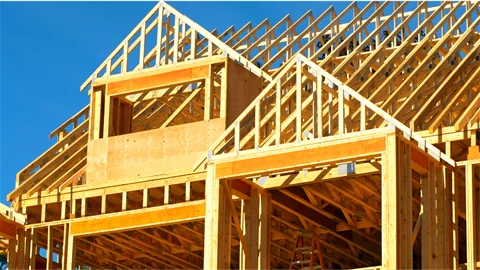Lakewood's Sustainable Development Standards: Paving the Way for a Greener Future
Lakewood Roundup
Archives
Lakewood's Sustainable Development Standards: Paving the Way for a Greener Future
SIGN UP FOR OUR NEWSLETTER
Lakewood's Sustainable Development Standards: Paving the Way for a Greener Future |
New regulations aim to enhance sustainability and reduce environmental impact in local construction projects |
In June 2022, the Lakewood City Council adopted significant updates to the city's sustainable development standards, marking a pivotal step toward a more environmentally conscious community.
These revisions to Article 13 of the Lakewood Zoning Ordinance are designed to align new development projects with the community's vision for sustainability, focusing on reducing greenhouse gas emissions and minimizing waste.
Building upon existing standards, the updates introduce the Enhanced Development Menu (EDM), a Greenhouse Gas (GHG) Mitigation Program, and reinforced requirements for construction and demolition (C&D) waste recycling.
Enhanced Development Menu (EDM)
The EDM is a point-based system that mandates developers to achieve a specified number of points based on their project's square footage.
This flexible approach allows for a variety of sustainable options, including energy efficiency measures, renewable energy installations, local food access initiatives, and public art contributions.
By offering a diverse range of choices, the EDM encourages developers to tailor sustainability efforts to each project's unique context.
Greenhouse Gas Mitigation Program
To address climate change proactively, the GHG Mitigation Program sets maximum allowable annual emissions for development projects, determined by their type and size.
Developers can meet these performance standards through strategies such as building electrification, incorporating renewable energy systems, installing electric vehicle charging infrastructure, and providing recycling and composting services.
Alternatively, developers have the option to pay a fee in lieu of direct mitigation efforts, contributing to the city's broader sustainability initiatives.
Construction and Demolition Waste Recycling
Recognizing the substantial waste generated by construction and demolition activities, Lakewood has implemented stringent recycling standards.
Applicable projects, including all demolitions and new constructions exceeding 2,500 square feet, are required to divert specific materials—such as asphalt, concrete, cardboard, untreated wood, metal, and reusable architectural salvage—from landfills.
Developers must submit a comprehensive waste management plan and may be subject to a performance security deposit to ensure compliance.
Anticipated Impact by 2030
The implementation of these standards is expected to yield significant community benefits by 2030, including:
- Completion of 200 projects adhering to the Enhanced Development Menu.
- Avoidance of 200,000 metric tons of greenhouse gas emissions, representing a 10% reduction.
- Potential savings exceeding $20 million in utility bills for building occupants.
- Reduction of other air pollutants, including ozone, sulfur dioxide, nitrogen oxides, and particulates.
- Achieving a 65% landfill diversion rate for construction and demolition waste.
- Securing funding to support the sustainability of existing buildings and infrastructure.
These initiatives underscore Lakewood's commitment to fostering a sustainable and resilient community, setting a precedent for responsible development practices.
For more detailed information on the updated sustainable development standards, residents and developers are encouraged to consult the city's official resources. |

